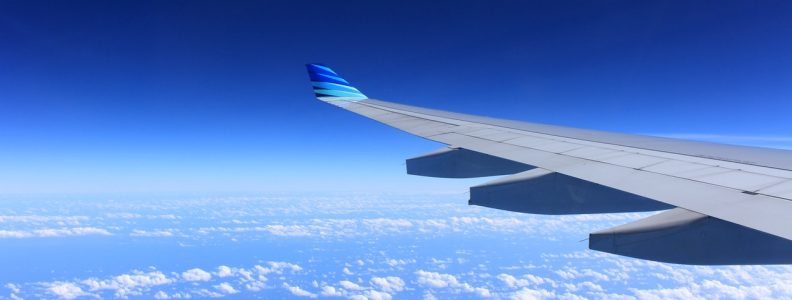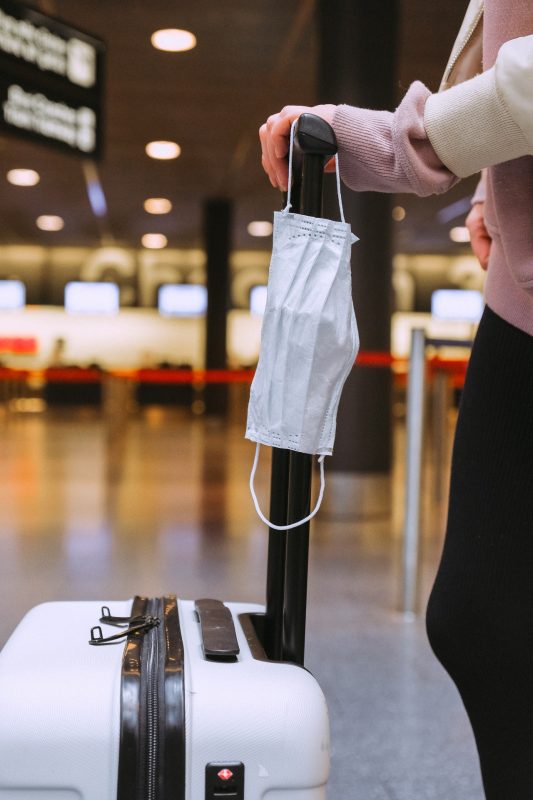
Airlines Requiring Masks, Spaced Seating, and More Info You Should Know Before Flying
As COVID-19 restrictions ease, airports and airlines are implementing new safety standards to not only limit the spread of the novel coronavirus and protect travelers, but also to give the public more peace of mind that they can safely travel again. The airport injury law team at Abrams Landau, Ltd.—located just a few miles away from Washington Dulles International Airport (IAD)—knows from helping our injured clients that traveling in of itself can already be a stressful ordeal with many unknowns at every turn. With the added precautions, dangers and changes because of the coronavirus, we want to help you be as best prepared as you can by providing helpful information for your travels. We interviewed a security personnel at Dulles Airport for more direct insight and perspective, which you can read here.
All US airlines require masks. (Please note that requirements and procedures may change after this article is written, so make sure to check the airport and airline you will be traveling with for the most updated information prior to your travels). Most international airlines require masks as well, but check ahead as each airlines requirements slightly differ and some airlines provide masks for passengers while others do not.

JetBlue was the first U.S. airline to require all passengers to wear a face mask during check-in, boarding, in flight, and when deplaning. They announced the new rule on May 1, 2020 and it went into effect on May 4. Within a few days, United Airlines, American Airlines, Delta Air Lines, and Southwest all followed suit.
The Centers for Disease Control and Prevention (CDC) asks those who are not on the front lines of the coronavirus pandemic, such as health-care workers or medical first responders, to wear cloth face coverings and not surgical masks or N95 respirators. Click here to read more and how you can make your own on the CDC website. However, masks are not meant to replace social distancing (stand at least 6 feet apart from others) and you should always wash your hands thoroughly and avoid touching your face.
Many airlines and airports have ramped up their cleaning and disinfecting in order to combat the spread of COVID-19. Some airlines clean planes, including seats, almost after every flight. Airlines and airports are getting innovative, as well, to enhance the effectiveness of disinfecting surfaces. For instance, Delta Airlines is using an “electrostatic sprayer,” which releases a mist of disinfectant. According to a New York Times article, “Pittsburgh International Airport recently became the first American airport to use robots with UV-C rays to clean and disinfect the floors in high-traffic areas.”
Masks can be taken off to eat and drink on airlines that are serving meals. However, many airlines have stopped serving food altogether on flights and many airport shops may be closed, so we recommend bringing your own food for the flight. Keep in mind, though, that because of new TSA changes, people traveling with food should place it in a plastic bag and should put it in a separate bin before it goes through the X-ray machine. According to the TSA, food items “often trigger an alarm during the screening process; separating the food from the carry-on bag lessons the likelihood that a TSA officer will need to open the carry-on bag and remove the food items for a closer inspection.”
Airlines are also trying to space passengers out on flights in order to enforce social distancing, but this is not always guaranteed. Some images of pictures of flights in which every seat seems to be filled went viral online, but this is not the norm as on average, flights are carrying about 39 passengers. In the first two months of the year, flights were carrying about 85-100 passengers on average.
If you can, download the app for the airline you will be traveling with for touchless boarding. And always carry and properly use a mask, disinfectant wipes and hand sanitizer. Click here to read our top 5 tips for staying healthy in the air.
If you or someone you know was injured due to no fault of your own while traveling or while working at an airport, please give us a call (703-796-9555) or email us at Abrams Landau, Ltd.
